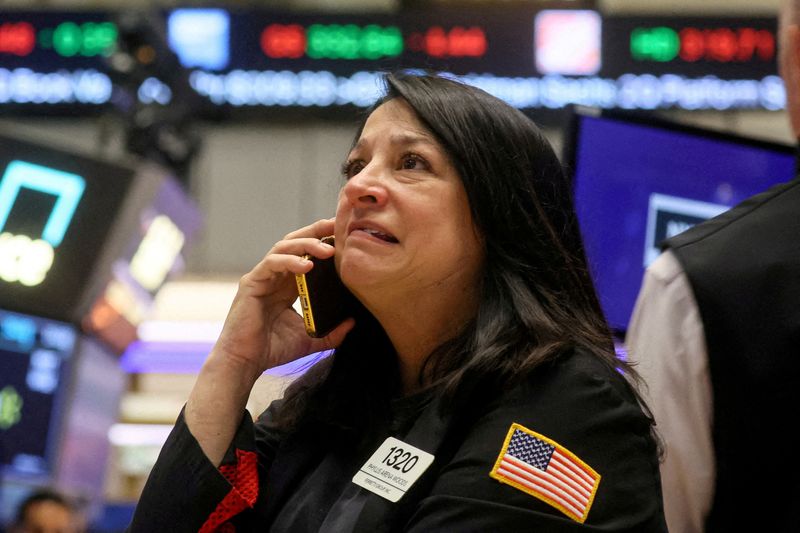By Marc Jones
LONDON (Reuters) - Below are five charts showing the volatile response of global financial markets to this week's war between Israel and Hamas.
1/TAKING STOCK
MSCI's main world stocks index has reacted to the conflict by notching up its best week in almost two months.
But that may have more to do with global bond market borrowing costs which - after rising sharply and knocking the confidence of equity markets - have seen their biggest weekly drop since early June. [GVD/EUR]
That has come as officials at the world's most influential central banks such as the Federal Reserve and European Central Bank have made comments hinting that their relentless run of interest rate hikes may be wrapping up.
But top-rated government bonds also have a traditional safe-haven appeal, so they are a natural place for investors to park their money during times of geopolitical stress.
2/OIL & GAS
Oil and gas markets have been where the nervousness has been most evident due to fears that Israel could at some point strike out at major oil producer Iran, a long-term backer of Hamas.
Brent oil has shoot up over 5%, its biggest weekly jump since April [O/R], while European gas prices have seen a near 40% surge, the largest weekly leap of the year so far.
It hasn't just been down to the conflict, though. On Thursday, the United States imposed the first sanctions on owners of tankers carrying Russian oil priced above the G7's price cap of $60 a barrel to close loopholes in the mechanism designed to punish Moscow for its invasion of Ukraine.
3/GOLD SHINES
Safe-haven gold has had its best week since mid-March with a near 3% rise. As with stocks, lower bond market yields have probably helped too, as they has shaved down the premium that bonds offer investors compared to non-interest paying bullion.
4/WEAKEST OF THE WEEK
Perhaps unsurprisingly, Israel's shekel currency has had the weakest week in FX markets.
Its more than 3% drop marks its biggest weekly fall since February when concerns about rule of law changes were still raw. But this week's decline has also come as the country's central bank put $30 billion of its reserves on the line to support the shekel.
5/LOCAL IMPACT
Another clear sign of stress in Israel's markets has been a huge spike in the cost of insuring its government debt using what are known as credit default swaps (CDS).

Investors use CDS either as a protection tool or to speculate and this week the cost of buying Israel CDS has surged 80%.
On top of that, Moody's is scheduled to review Israel's 'A1' credit rating late on Friday. The country has never been downgraded by any of the three major rating agencies - S&P, Moody's and Fitch - but the rise in CDS means that it now costs the same to insure Israel exposure as it does for India, which is five rating levels below Israel on the lowest rung of 'investment grade'.